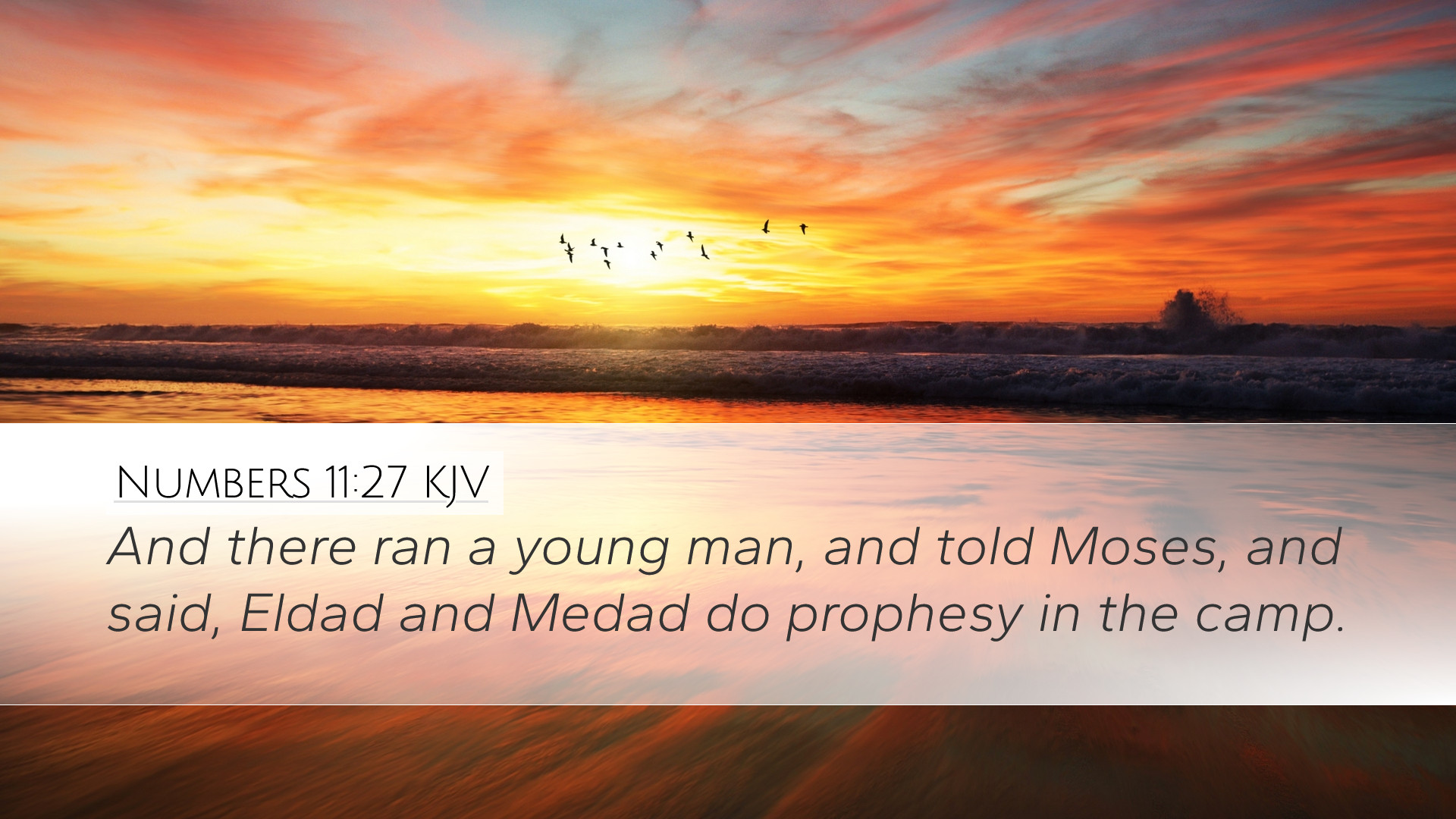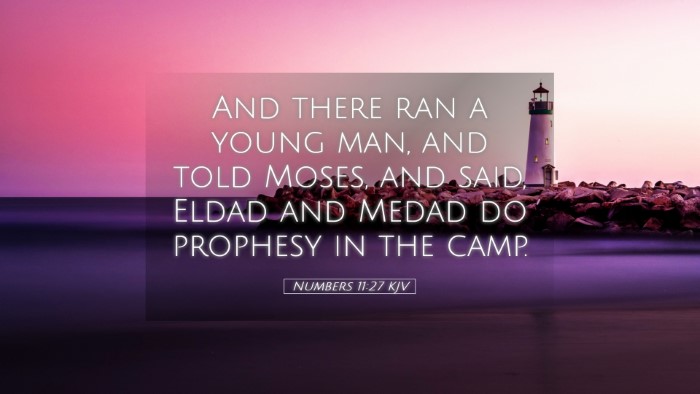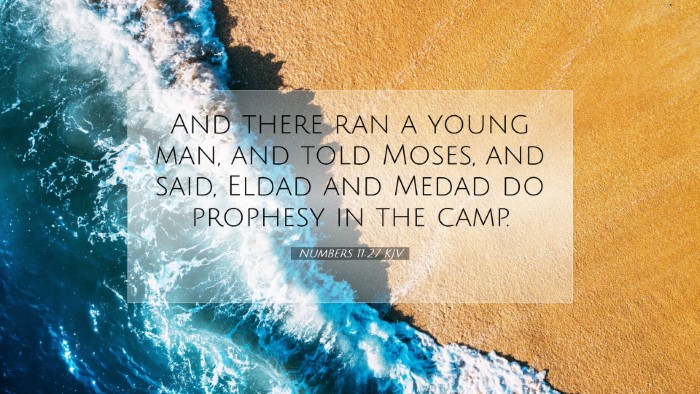Commentary on Numbers 11:27
Verse: "And there ran a young man, and told Moses, and said, Eldad and Medad do prophesy in the camp."
General Overview
The context of Numbers 11 reveals the Israelites' struggles—complaints about their circumstances—and God's subsequent provision of leadership through eldership. Numbers 11:27 captures a significant moment regarding the Spirit of God empowering individuals to prophesy, challenging traditional notions of spiritual authority.
Insights from Prominent Commentaries
-
Matthew Henry's Commentary
Henry emphasizes the spontaneity of the young man's report, illustrating the unexpected ways in which God's Spirit operates among individuals. The emergence of Eldad and Medad as prophets demonstrates that divine calling is not confined to conventional leaders. Henry notes the implications for the community, suggesting that God's Spirit is not limited to the appointed seventy elders, but can fall upon others as well.
-
Albert Barnes' Notes on the Bible
Barnes discusses the significance of prophesying outside the established order. He highlights that Eldad and Medad's actions may challenge the authority of Moses and the seventy elders, yet they are divinely chosen. This situation prompts reflection on leadership and authority within the community of faith. Barnes also connects this passage to the New Testament practice of spiritual gifts, indicating continuity of prophetic ministries.
-
Adam Clarke's Commentary
Clarke provides insight into the identity of Eldad and Medad, highlighting their historical significance as individuals chosen by God, despite not being physically present at the initial assembly with Moses. He posits that their inclusion serves as a profound reminder that God's calling can transcend human boundaries. Clarke further observes the implications for the Israelites' understanding of prophecy, suggesting they had to reconcile their previous notions of who could speak for God.
Theological Reflections
Numbers 11:27 prompts vital theological reflections on the nature of prophecy and leadership in God's community. The verse urges congregations and church leaders to consider how God may work outside established structures. It challenges traditional hierarchies and invites believers to be open to the movements of the Spirit among unfamiliar individuals.
Pastoral Applications
-
Encouragement of Diverse Voices:
Pastors should cultivate environments where diverse spiritual gifts are acknowledged and celebrated, recognizing that God's work doesn't always conform to human expectations.
-
Recognition of God’s Activity:
Encouraging church members to be attentive to God’s activity in unexpected places can help sustain a vibrant community of faith.
-
Reflection on Authority:
This verse prompts leaders to reflect on the nature of spiritual authority, urging them to balance humility with discernment when recognizing prophetic voices.
Conclusion
Numbers 11:27 serves as a powerful reminder of God's sovereignty in empowering individuals for His purposes. Through the insights drawn from respected commentaries, pastors, students, and theologians are encouraged to explore how the Spirit moves beyond conventional boundaries, inviting both reflection and action in the community of faith.


